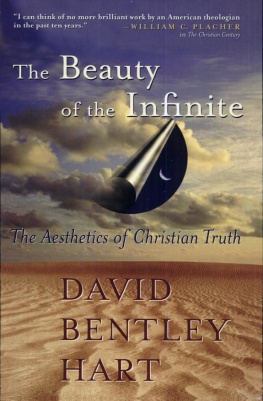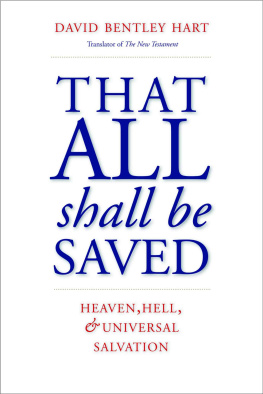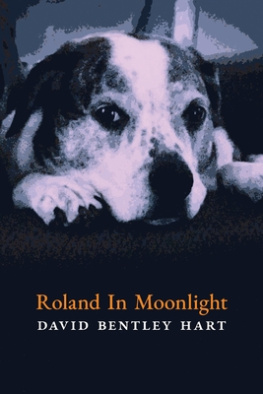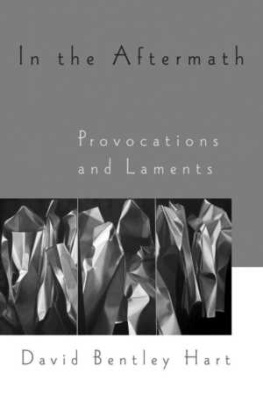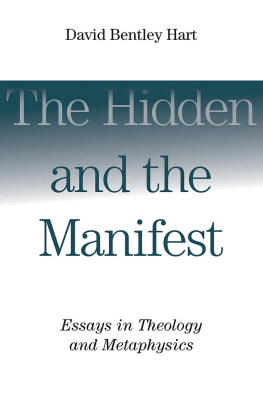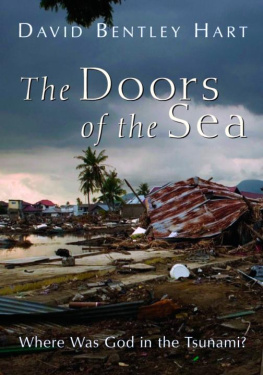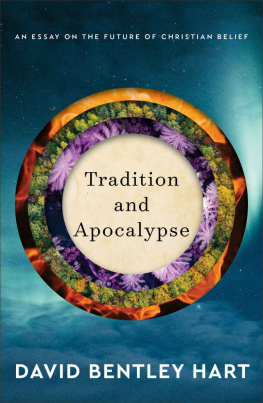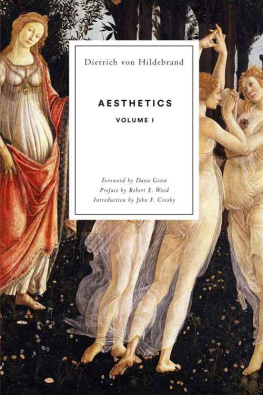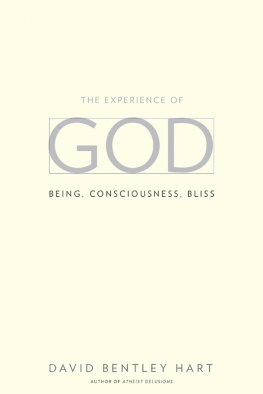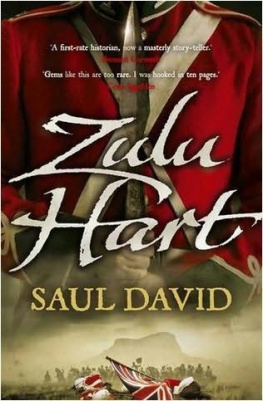David Bentley Hart - The Beauty of the Infinite: The Aesthetics of Christian Truth
Here you can read online David Bentley Hart - The Beauty of the Infinite: The Aesthetics of Christian Truth full text of the book (entire story) in english for free. Download pdf and epub, get meaning, cover and reviews about this ebook. year: 2003, publisher: Wm. B. Eerdmans Publishing, genre: Science. Description of the work, (preface) as well as reviews are available. Best literature library LitArk.com created for fans of good reading and offers a wide selection of genres:
Romance novel
Science fiction
Adventure
Detective
Science
History
Home and family
Prose
Art
Politics
Computer
Non-fiction
Religion
Business
Children
Humor
Choose a favorite category and find really read worthwhile books. Enjoy immersion in the world of imagination, feel the emotions of the characters or learn something new for yourself, make an fascinating discovery.
- Book:The Beauty of the Infinite: The Aesthetics of Christian Truth
- Author:
- Publisher:Wm. B. Eerdmans Publishing
- Genre:
- Year:2003
- Rating:5 / 5
- Favourites:Add to favourites
- Your mark:
- 100
- 1
- 2
- 3
- 4
- 5
The Beauty of the Infinite: The Aesthetics of Christian Truth: summary, description and annotation
We offer to read an annotation, description, summary or preface (depends on what the author of the book "The Beauty of the Infinite: The Aesthetics of Christian Truth" wrote himself). If you haven't found the necessary information about the book — write in the comments, we will try to find it.
David Bentley Hart: author's other books
Who wrote The Beauty of the Infinite: The Aesthetics of Christian Truth? Find out the surname, the name of the author of the book and a list of all author's works by series.
The Beauty of the Infinite: The Aesthetics of Christian Truth — read online for free the complete book (whole text) full work
Below is the text of the book, divided by pages. System saving the place of the last page read, allows you to conveniently read the book "The Beauty of the Infinite: The Aesthetics of Christian Truth" online for free, without having to search again every time where you left off. Put a bookmark, and you can go to the page where you finished reading at any time.
Font size:
Interval:
Bookmark:

David Bentley Hart
Hunc Librum Insolitum atque Inusitatum Solicandidae et Patricio Nuncupo
The Violence of Metaphysics and the Metaphysics of Violence
A Dogmatica Minora
Persuasion, the Tyranny of Twilight, and the Language of Peace
This book had its first life more than seven years ago, in the very different form of an academic dissertation; and, while it has developed and diverged considerably from that more callow original, between its infant and adult selves there remains a continuity of identity and purpose. Hence I should first thank those advisors and committee members who oversaw and collaborated in its birth: Larry Bouchard, Eugene Rogers, Robert Wilken, and John Yiannias (who is also my son's godfather). All, by their encouragements and discouragements, approbations and critical cautions, aided me in refining my argument and disciplining my method (to such degree, that is, as I am capable of discipline).
I wish also to thank the friends whose comments upon the text, at various stages of its incubation, and whose conversations with me concerning many and myriad things were of inestimable help in shaping this book: John Betz, Joseph Harder, T. Stuart Hinchliffe, R. Trent Pomplun, Brian Sholl, and Alfred Turnipseed. To this company I should add John Milbank, who - even at those times when we have been arguing over one thing or another-has been indefatigable in his generosity to me and my work.
And I owe no small measure of gratitude to a number of scholars who, through conversation and debate during a particularly crucial year, unwittingly aided me in the preparation of this book's final draft: Martin Bieler, Brian Daley, Paul Griffiths, Reinhard Hiitter, P. Travis Kroeker, R. R. Reno, Philip Rolnick, Janet Soskice, and Carver Yu. Robert Jenson was especially patient and good-humored in allowing me to argue with him over my differences with him regarding how one should understand the relation between the immanent and economic trinities (vide infra). Other names should no doubt be added to this list, but mine is a memory often culpably feeble.
I should add a special thanks to Bill Eerdmans for generously undertak ing the publication of this book. His press - having emerged over the years as the most impressively diverse, ambitious, and catholic in the English-speaking theological world - scarcely needed the addition of a long and eccentric book by a scholar of small note to adorn its catalogue; and, given that the economics of theological publishing more and more forces publishing houses to insist on ever more compact and marketable texts, his sympathy for my project and willingness to grant it print and covers evoke my sincerest gratitude.
Finally, all thanks and love to my wife Solwyn for her longanimity in living with a husband whose fits of scholarly abstraction all too frequently distract him from more needful things and produce very little in the way of material advantage. And all thanks and love to Patrick too, whose arrival in my life midway between the completion of this book's first and last versions granted me the extreme privilege of receiving the world anew through his eyes, thus confirming me in my certainty that the intuition that initially prompted this project was indeed an intuition of the truth.
The rather prosaic question that initially prompted this long, elliptical essay in theological aesthetics, stated most simply, was this: Is the beauty to whose persuasive power the Christian rhetoric of evangelism inevitably appeals, and upon which it depends, theologically defensible? Admittedly, at first, such a question might appear at best merely marginal, at worst somewhat precious; but, granted a second glance, it opens out upon the entire Christian tradition as a question that implicitly accompanies the tradition's every proclamation of itself. Christianity has from its beginning portrayed itself as a gospel of peace, a way of reconciliation (with God, with other creatures), and a new model of human community, offering the "peace which passes understanding" to a world enmeshed in sin and violence. The earliest confession of Christian faith - K6ploS 'Irlaous - meant nothing less radical than that Christ's peace, having suffered upon the cross the decisive rejection of the powers of this world, had been raised up by God as the true form of human existence: an eschatologically perfect love, now made invulnerable to all the violences of time, and yet also made incomprehensibly present in the midst of history, because God's final judgment had already befallen the world in the paschal vindication of Jesus of Nazareth. It is only as the offer of this peace within time, as a real and available practice, that the Christian evangel (and, in particular, the claim that Christ crucified has been raised from the dead) has any meaning at all; only if the form of Christ can be lived out in the community of the church is the confession of the church true; only if Christ can be practiced is Jesus Lord. No matter how often the subsequent history of the church belied this confession, it is this presence within time of an eschatological and divine peace, really incarnate in the person of Jesus and forever imparted to the body of Christ by the power of the Holy Spirit, that remains the very essence of the church's evangelical appeal to the world at large, and of the salvation it proclaims.
A certain current within contemporary philosophy, however, asserts that violence is - simply enough - inescapable: wherever Nietzsche's narrative of the will to power has been absorbed into the grammar of philosophical reflection, and given rise to a particular practice of critical suspicion, a profound prejudice has taken root to the effect that every discourse is reducible to a strategy of power, and every rhetorical transaction to an instance of an original violence. From this vantage a rhetoric of peace is, by definition, duplicity; subjected to a thorough critique, genealogy, or deconstruction, evangelical rhetoric can undoubtedly be shown to conceal within itself the most insatiable appetite for control; the gesture by which the church offers Christ to the world, and bears witness to God's love for creation, is in reality an aggression, the ingratiating embassy of an omnivorous empire. Of course, if power's pathos were indeed the hidden wellspring of every act of persuasion, Christianity, as it conceives of itself, would be an impossible presence within history: the church as the earnest of the "peaceable kingdom" could never communicate itself in a way that would not contradict its own evangel, and the "city of peace" that the church tries (or at any rate claims) to be could never actually take shape, except mendaciously, as a dissimulation of power's arcane operations behind an apparent renunciation of power (such, at least, is Nietzsche's accusation in The Genealogy of Morals). What this book interrogates, then, is the difference between two narratives: one that finds the grammar of violence inscribed upon the foundation stone of every institution and hidden within the syntax of every rhetoric, and another that claims that within history a way of reconciliation has been opened up that leads beyond, and ultimately overcomes, all violence.
Font size:
Interval:
Bookmark:
Similar books «The Beauty of the Infinite: The Aesthetics of Christian Truth»
Look at similar books to The Beauty of the Infinite: The Aesthetics of Christian Truth. We have selected literature similar in name and meaning in the hope of providing readers with more options to find new, interesting, not yet read works.
Discussion, reviews of the book The Beauty of the Infinite: The Aesthetics of Christian Truth and just readers' own opinions. Leave your comments, write what you think about the work, its meaning or the main characters. Specify what exactly you liked and what you didn't like, and why you think so.

